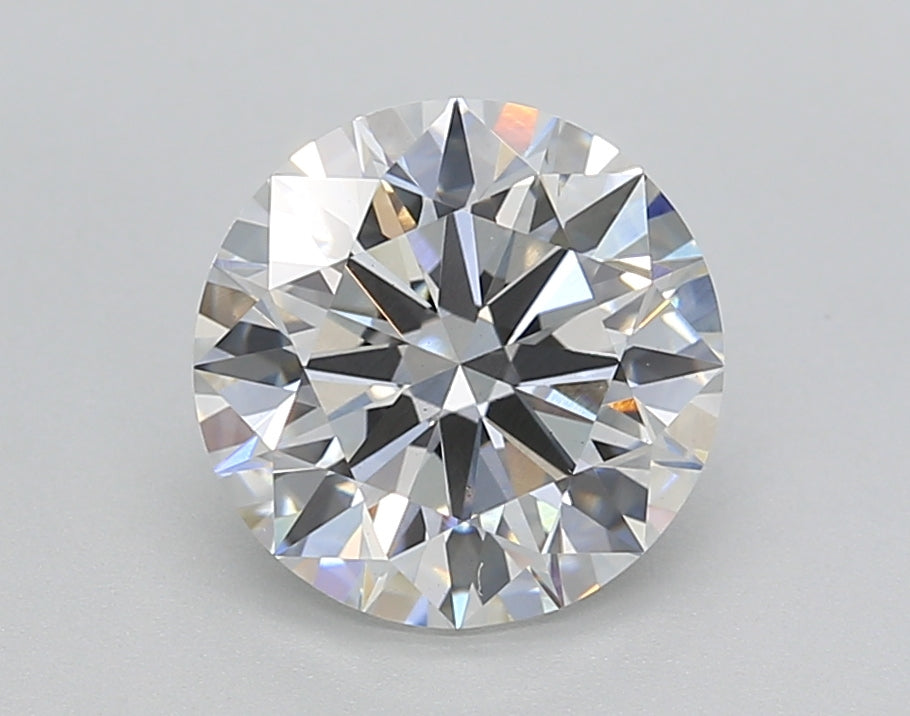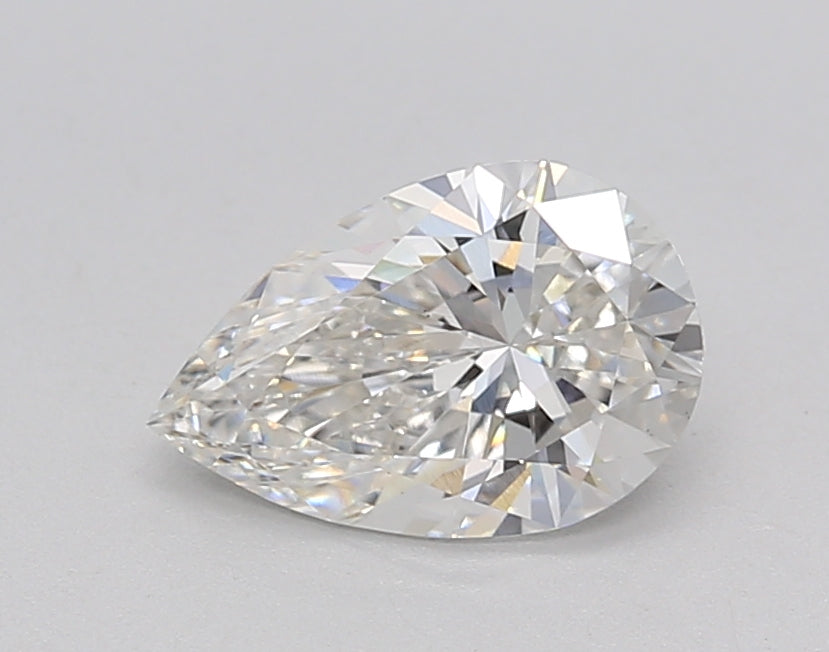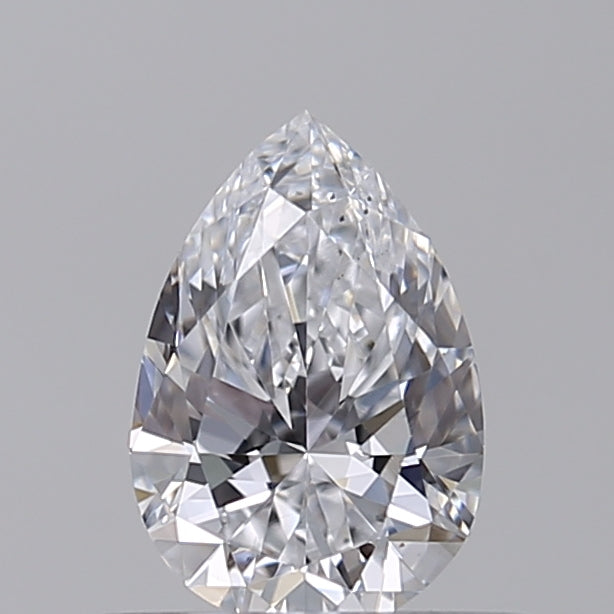
Lab Grown Diamonds
Explore our stunning collection of lab grown diamonds, where cutting-edge technology meets timeless elegance. From lab created diamond engagement rings to sustainable diamond jewelry, our conflict-free diamonds offer the same brilliance and durability as mined diamonds at a fraction of the cost. Choose from a wide range of styles, including round cut, oval cut, princess cut, and more, to find the perfect piece. Make an eco-conscious statement with our sustainable luxury collection, featuring certified diamonds that are not only beautiful but also environmentally friendly.
Round Cut Lab Grown Diamonds
View allOval Cut Lab Grown Diamonds
View allPear Cut Lab Grown Diamond
View allCushion Cut Lab Grown Diamonds
View allMarquise Cut Lab Grown Diamonds
View allPrincess Cut Lab Grown Diamonds
View allHeart Cut Lab Grown Diamonds
View allHexagon Cut Lab Grown Diamonds
View allDiscover the Elegance of Lab Grown Diamonds
Lab grown diamonds are a revolutionary alternative to traditional mined diamonds, offering exceptional quality, affordability, and sustainability. Also known as manufactured diamonds, engineered diamonds, or cultured diamonds, these gems are created in advanced laboratories under controlled conditions, ensuring they are chemically, physically, and optically identical to natural diamonds.
Our collection of lab cultured diamonds and lab fabricated diamonds features the finest craftsmanship and precision. Whether you're searching for lab created diamonds or lab diamonds for your engagement ring, wedding band, or everyday jewelry, we offer only the best lab grown diamonds that rival the beauty of mined diamonds.
Why Choose Lab Grown Diamonds?
Man made diamonds are not only a stunning and ethical choice but also a cost-effective one. Our selection includes a range of synthetic diamonds and laboratory diamonds that cater to every taste and style. Experience the brilliance of the best lab diamonds at competitive lab grown diamonds price.
For those seeking innovation in diamond technology, our CVD diamonds (Chemical Vapor Deposition) offer unparalleled clarity and brilliance. Whether you're comparing lab grown v natural diamond or exploring the differences in lab v natural diamond, our diamonds stand out for their quality, sustainability, and affordability.
Affordable Luxury with Lab Grown Diamonds
The lab grown diamond cost is significantly lower than natural diamonds, making it an ideal choice for budget-conscious buyers. We also provide the best man made diamonds and lab produced diamonds, ensuring you never compromise on quality. From lab manufactured diamonds to laboratory created diamonds, each piece is crafted to perfection.
Explore our range of best manufactured diamonds to find the ideal gem for your jewelry. Whether you're comparing man made diamonds price or debating between moissanite v lab diamond, we provide detailed guidance to help you make the perfect choice.
Ethical and Certified Lab Grown Diamonds
Our man created diamonds are conflict-free and environmentally friendly, making them a responsible choice for modern buyers. Additionally, all our diamonds are certified by trusted organizations like GIA for diamonds, ensuring authenticity and quality.
Comparison: Lab-Grown Diamonds vs Natural Diamonds
| Feature | Lab-Grown Diamonds | Natural Diamonds |
|---|---|---|
| Origin | Created in a controlled laboratory environment using advanced technology. | Formed naturally under the Earth's crust over billions of years. |
| Composition | Chemically, physically, and optically identical to natural diamonds (pure carbon). | Made of pure carbon, with unique inclusions from their natural formation. |
| Cost | 60-70% less expensive than natural diamonds of comparable quality. | More expensive due to limited supply and high mining costs. |
| Sustainability | Considered eco-friendly as they avoid the environmental impact of mining. | Mining can cause significant environmental disruption and resource depletion. |
| Ethical Concerns | Free from ethical issues like conflict or blood diamonds. | Risk of being linked to conflict diamonds, though certifications like Kimberley Process help. |
| Availability | Readily available in consistent sizes and quality. | Availability depends on mining and may have irregular supply. |
| Certifications | Certified by reputable organizations (e.g., IGI, GIA) to verify quality and authenticity. | Certified by organizations like GIA to ensure quality and authenticity. |
| Durability | Same as natural diamonds: 10 on the Mohs scale of hardness. | Equally durable: 10 on the Mohs scale of hardness. |
| Inclusions | Generally fewer inclusions due to controlled growth processes. | Natural inclusions vary based on the diamond's origin and age. |
| Appearance | Visually identical to natural diamonds; requires special equipment to differentiate. | Unique due to natural inclusions and growth patterns. |
| Resale Value | Lower resale value due to abundance and lower market demand. | Higher resale value as they are perceived as rare and valuable. |
| Customization | Easier to create specific shapes and sizes on demand. | Limited by what is naturally mined. |
| Market Perception | Increasingly popular, especially among eco-conscious and budget-savvy buyers. | Seen as traditional and luxurious, with a strong emotional and historical value. |
Comparison: Moissanite vs Lab-Grown Diamonds
| Feature | Moissanite | Lab-Grown Diamonds |
|---|---|---|
| Origin | Created in laboratories using silicon carbide as the primary material. | Created in laboratories using advanced technology to replicate natural diamond formation. |
| Composition | Composed of silicon carbide, which is different from diamonds' pure carbon structure. | Pure carbon, identical in composition to natural diamonds. |
| Cost | More affordable than lab-grown diamonds, especially for larger sizes. | More expensive than moissanite, but less costly than natural diamonds. |
| Brilliance | Exhibits more "fire" and rainbow-like sparkle due to its higher refractive index. | Reflects white light similar to natural diamonds, offering a classic diamond sparkle. |
| Durability | Durable at 9.25 on the Mohs scale, suitable for everyday wear but slightly softer than diamonds. | Extremely durable at 10 on the Mohs scale, the hardest material known. |
| Appearance | Similar to diamonds but with a more noticeable rainbow sparkle. | Identical to natural diamonds in appearance, requiring special equipment to differentiate. |
| Color | Typically near-colorless but may have slight hues of yellow or green. | Available in a variety of colors, including completely colorless (D grade). |
| Resale Value | Lower resale value due to lower demand and material perception. | Higher resale value than moissanite but lower than natural diamonds. |
| Sustainability | Eco-friendly as it is lab-created and requires minimal resources. | Eco-friendly and sustainable, avoiding the environmental impact of mining. |
| Ethical Concerns | Free from conflict or ethical concerns. | Free from conflict or ethical concerns, certified for authenticity. |
| Certifications | Typically not certified by organizations like GIA or IGI. | Certified by IGI, GIA, or other reputable organizations for quality and authenticity. |
| Customization | Easily customizable in various shapes and sizes. | Easily customizable in various shapes, sizes, and qualities. |
| Market Perception | Popular for budget-conscious buyers seeking a diamond alternative. | Preferred by those who want a genuine diamond alternative with ethical and eco-friendly values. |









































